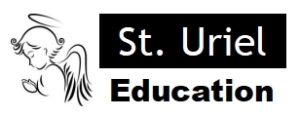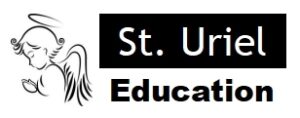Academic writing is not easy and can be extremely challenging. As a research student, you get to do a lot of academic writing from writing your term paper to working on peer-reviewed journal articles, you definitely need a robust academic writing style to survive the popular motto in academia: publish or perish.
I have already shared various resources to help you with your academic writing including academic writing guides, academic writing cheat sheets, research methodology textbooks, and many more.
Besides these resources, I am also sharing with you this collection featuring some good books that can help you in the planning and writing of your dissertation, thesis or proposal. More specifically, the books focus on these key areas: research design, formatting, mechanics of writing, presenting, and publishing. Links to the books are under the visual.
1- The Craft of Research, Fourth Edition (Chicago Guides to Writing, Editing, and Publishing) 4th Edition, by Wayne C. Booth (Author), Gregory G. Colomb (Author), Joseph M. Williams (Author), Joseph Bizup (Author), William T. FitzGerald (Author)
‘Conceived by seasoned researchers and educators Wayne C. Booth, Gregory G. Colomb, and Joseph M. Williams, this fundamental work explains how to find and evaluate sources, anticipate and respond to reader reservations, and integrate these pieces into an argument that stands up to reader critique.’
2- ”They Say / I Say”: The Moves That Matter in Academic Writing, with 2016 MLA Update (Third Edition) by Gerald Graff (Author), Cathy Birkenstein (Author)’
“They Say / I Say” identifies the key rhetorical moves in academic writing, showing students how to frame their arguments in the larger context of what others have said and providing templates to help them make those moves. And, because these moves are central across all disciplines, the book includes chapters on writing in the sciences, writing in the social sciences, and―new to this edition―writing about literature.’
3- Research Design: Qualitative, Quantitative, and Mixed Methods Approaches, 4th Edition, by John W. Creswell (Author)
‘The eagerly anticipated Fourth Edition of the title that pioneered the comparison of qualitative, quantitative, and mixed methods research design is here! For all three approaches, Creswell includes a preliminary consideration of philosophical assumptions, a review of the literature, an assessment of the use of theory in research approaches, and reflections about the importance of writing and ethics in scholarly inquiry.’
by American Psychological Association (Author)
‘The “Publication Manual” is the style manual of choice for writers, editors, students, and educators. Although it is specifically designed to help writers in the behavioral sciences and social sciences, anyone who writes non-fiction prose can benefit from its guidance.’
5- How To Prepare A Dissertation Proposal: Suggestions for Students in Education & the Social and Behavioral Sciences by David Krathwohl (Author)
‘”What are the core elements of a strong proposal?” “How can I accent the strengths of my study design?” “How can computer use facilitate my literature review?” “What is the best way to get my proposal reviewed and approved?” You will find the answers to these and other key issues in this unique “assembly manual” for crafting a complete and convincing dissertation proposal.’
6- The Dissertation Journey: A Practical and Comprehensive Guide to Planning, Writing, and Defending Your Dissertation 2nd Edition by Carol M. Roberts (Author)
‘A dissertation can be challenging, but this informative book helps you overcome the obstacles along the way. Using graphics, checklists, and sample forms, this guide readies you for each step of the process, including selecting the committee, getting acclimated to academic writing, preparing for your oral defense, and publishing your research. ’
7- Writing Your Dissertation in Fifteen Minutes a Day: A Guide to Starting, Revising, and Finishing Your Doctoral Thesis 1st Edition by Joan Bolker (Author)
‘Dissertation writers need strong, practical advice, as well as someone to assure them that their struggles aren’t unique. Joan Bolker, midwife to more than one hundred dissertations and co-founder of the Harvard Writing Center, offers invaluable suggestions for the graduate-student writer. ’
8- How to Write a Lot: A Practical Guide to Productive Academic Writing (Lifetools: Books for the General Public) 1st Edition by Paul J. Silvia (Author)
‘In this practical, light-hearted, and encouraging book, Paul Silvia explains that writing productively does not require innate skills or special traits but specific tactics and actions. Drawing examples from his own field of psychology, he shows readers how to overcome motivational roadblocks and become prolific without sacrificing evenings, weekends, and vacations. After describing strategies for writing productively, the author gives detailed advice from the trenches on how to write, submit, revise, and resubmit articles, how to improve writing quality, and how to write and publish academic work.’
by John D. Cone (Author), Sharon L. Foster (Author)
‘Aimed to aid student writers through practical, logistical, and emotional stages of writing dissertations and theses, this book offers guidance to students through such important steps as defining topics, scheduling time to accommodate projects, and conducting, analyzing, writing, presenting, and publishing research.’


Leave A Comment